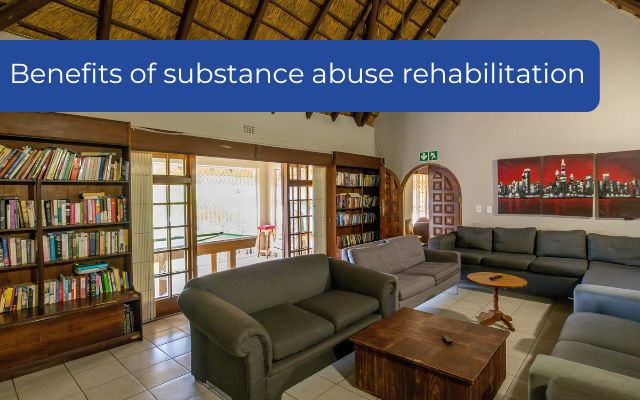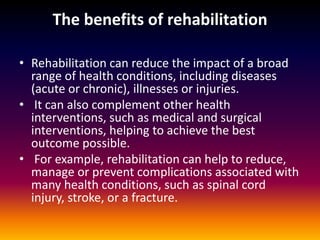The 20-Second Trick For Narconon Africa
The Only Guide to Narconon Africa
Table of ContentsNarconon Africa - Questions9 Easy Facts About Narconon Africa ExplainedExamine This Report on Narconon AfricaTop Guidelines Of Narconon AfricaThe Main Principles Of Narconon Africa Narconon Africa for DummiesThe smart Trick of Narconon Africa That Nobody is Talking About
In a collection of papers with Manudeep Bhuller and Katrine V. Lken, we get rid of these data challenges and the nonrandomness of jail time, using brand-new insights into how imprisonment affects recidivism, employment, youngsters, and criminal networks - Effective addiction treatment. Figure 1 Our work research studies the results of incarceration in Norway, a setting with two key advantagesWe can even more link this info to other family participants, consisting of youngsters and brother or sisters. We have details on co-offending that permits us to map out criminal networks for observed criminal offenses. Second, we can leverage the random assignment of criminal instances to courts who vary in their propensities to send out offenders to jail.
Yet some judges send accuseds to prison at a high price, while others are extra forgiving. We gauge a court's stringency as the typical incarceration price for all various other cases a court manages, after managing for court and year set impacts, which is the level of arbitrary project. This quasi-random assignment of court stringency can be utilized as an instrument for imprisonment, as it strongly anticipates the judge's decision in the present case, yet is uncorrelated with various other case qualities both deliberately and empirically.
Getting The Narconon Africa To Work
Characteristics of prisoners, consisting of demographics and criminal offense groups, are generally comparable in Norway and other countries, consisting of the United States, with the exemptions that the US homicide rate is much greater, and race plays a bigger duty there. What sticks out as various, especially compared to the USA, is the jail system.
Number 2In Norway, the typical time invested behind bars is a little over six months, which resembles most various other Western European countries. This contrasts with typical United States jail time of practically 3 years, which remains in large part the factor the United States is an outlier in its incarceration price compared with the remainder of the world [Number 1]
Narconon Africa Fundamentals Explained
This supplies much more separation between minor and hard lawbreakers than exists in the USA. There is no overcrowding in Norwegian prisons and better personal safety and security, with each detainee being designated to their own cell and a higher inmate-to-staff ratio than in the United States (https://www.provenexpert.com/narconon-africa/). Prisons in Norway likewise supply well-funded education, medicine treatment, psychological wellness, and job training programs
Our research on the impacts of incarceration on the culprit, utilizing the arbitrary project of courts as an instrument, yields three essential searchings for. Jail time inhibits better criminal actions. We locate that imprisonment decreases the probability that an individual will reoffend within five years by 27 percentage factors and lowers the matching number of criminal costs per individual by 10 fees.
The smart Trick of Narconon Africa That Nobody is Discussing
We discover sizable declines in reoffending probabilities and cumulative billed criminal activities even after defendants are launched from prison. Our 2nd result is that predisposition due to option on unobservable private attributes, if overlooked, results in the erroneous final thought that time spent behind bars is criminogenic. If we simply contrast criminal defendants sent out to prison versus those not imprisoned, we discover positive associations in between imprisonment and subsequent criminal offense.
This stands in contrast to our analysis based upon the random assignment of judges, which locates an opposite-signed outcome. Third, the reduction in criminal activity is driven by people that were not working prior to imprisonment. Amongst these individuals, jail time increases engagement in programs directed at enhancing employability and reducing recidivism, and this inevitably raises employment and incomes while dissuading criminal habits.

Jail time causes a 34 portion factor increase in participation in task training programs for the formerly nonemployed, and within 5 years their employment price increases by 40 portion factors. At the very same time, the likelihood of reoffending within five years is cut by 46 portion factors, and there is a decrease of 22 in the ordinary number of criminal charges.
The Basic Principles Of Narconon Africa

A probable description for the difference is that Norway's jail system differs substantially, both in terms of prison-term size and jail conditions, from the United States prison system. While recognizing the impacts of incarceration on the offender is a vital initial step, recording spillover impacts is also vital for assessing criminal justice plan and creating effective jail systems.
The 30-Second Trick For Narconon Africa

Ordinary least squares estimates expose that youngsters of incarcerated fathers are 1 percentage point extra likely to be charged with a criminal activity, relative to a mean of 13 percent, and show no result on school grades. Utilizing our court stringency tool, we discover no analytical proof that a father's imprisonment affects a kid's very own crime or institution grades, but we are not able to dismiss modest-sized effects.
Examine This Report about Narconon Africa
We specify criminal teams based on network links to previous criminal situations. Our evaluation yields 3 major searchings for. When a criminal network participant is put behind bars, their peers' chance of being billed with a future criminal offense reduces by 51 portion points over the next four years. Also, having an older brother put behind bars minimizes the possibility his younger bro will be billed with a criminal activity by 32 percentage factors over the next 4 years.